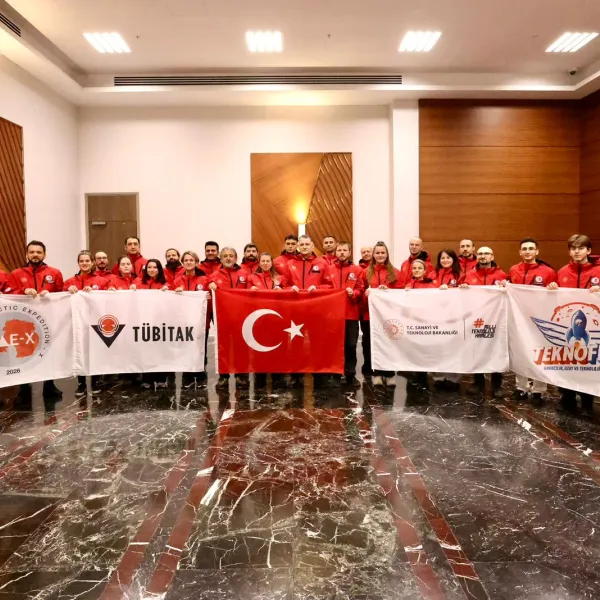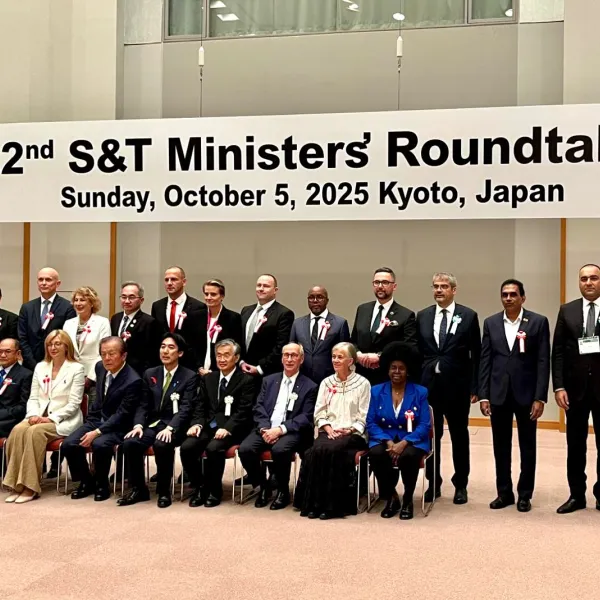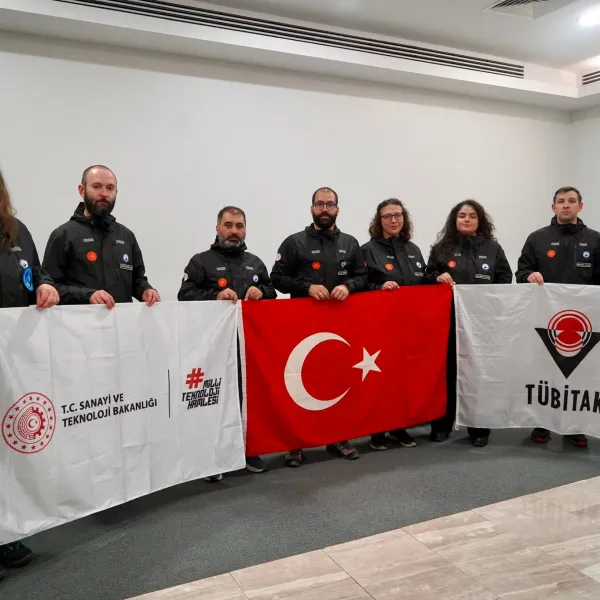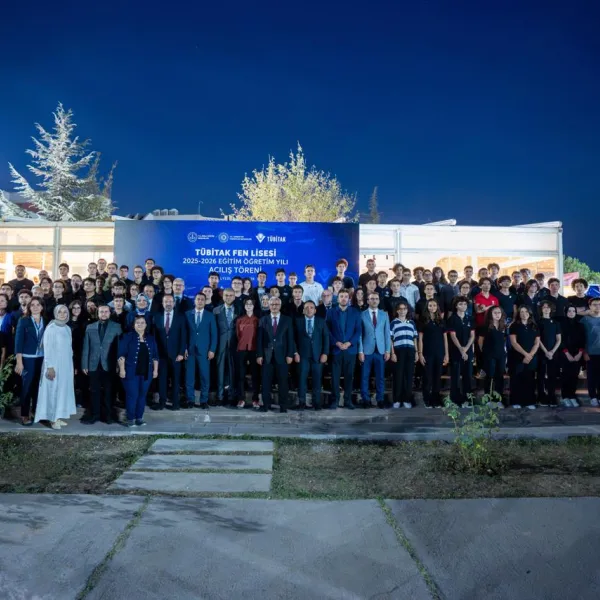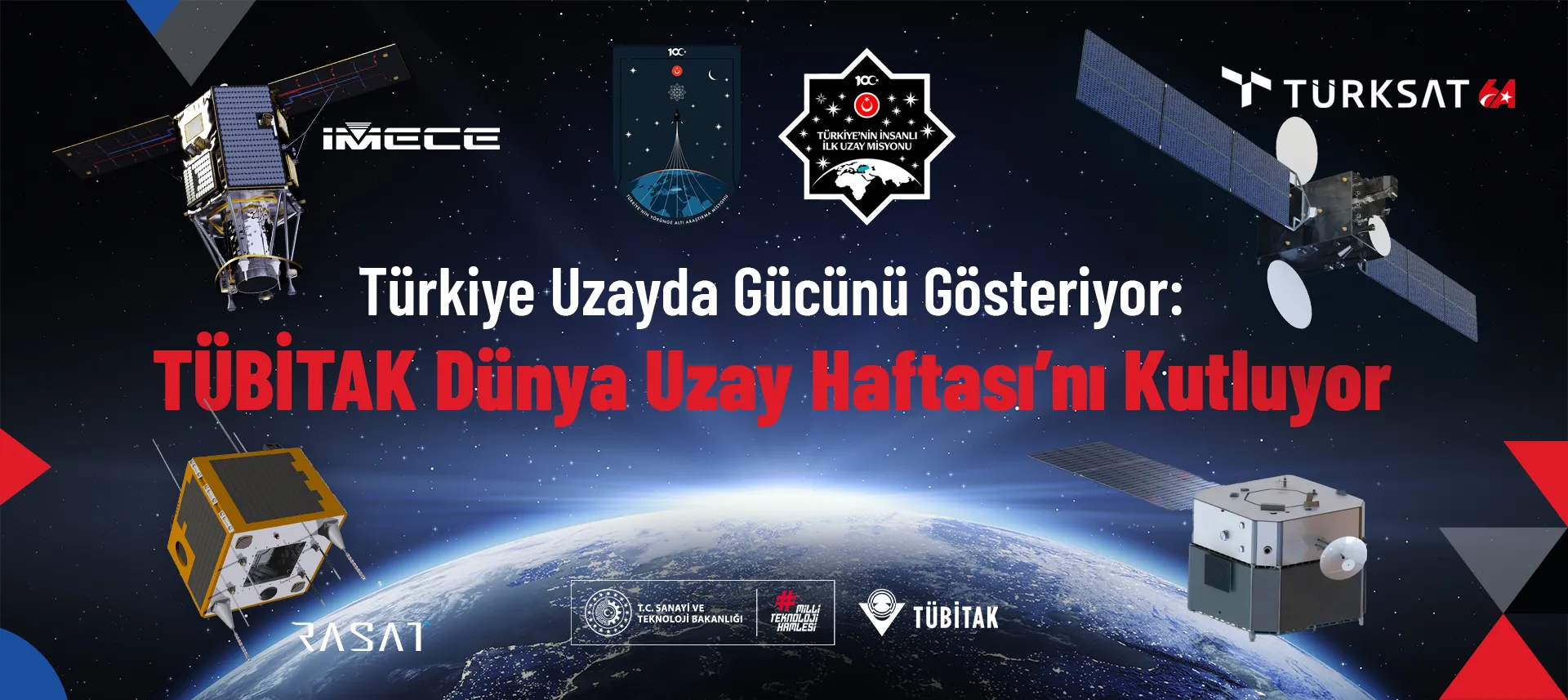
World Space Week, celebrated annually between 4 and 10 October around the world, is being held this year under the theme of ‘Living in Space’. TÜBİTAK, Türkiye's pioneer in science and technology, is strengthening our country's global vision with its steps in the field of space.
Satellite projects
The first milestone in Türkiye's journey to develop its own satellites was reached with the BİLSAT satellite. Launched in 2003, BİLSAT was not only Türkiye's first remote sensing satellite, but also provided our country with important experience in designing, manufacturing and operating its own satellites. This project played a critical role in laying the foundations for domestic satellite development capabilities.
Following this experience, the RASAT satellite was developed and placed into orbit in 2011. RASAT, Türkiye's first Earth observation satellite designed and manufactured entirely with domestic engineering capabilities, provided thousands of images during its time in orbit, enabling our country to gain significant expertise in satellite design, manufacturing, and operations. This established a robust infrastructure for Türkiye to develop its own capabilities in space technologies.
The GÖKTÜRK-2 satellite was launched into orbit in 2012. With its high-resolution imaging capabilities, GÖKTÜRK-2 is actively used in areas such as defence, environment, agriculture and urban planning, taking our expertise in the field of national observation satellites to the next level. With this project, Türkiye has achieved significant technical maturity in satellite subsystems and integration processes.
The İMECE project, built on this strong foundation, symbolised the transition to domestic observation capabilities with sub-metre resolution. Following the successful deployment of İMECE in orbit and its inclusion in the Turkish Air Force inventory, attention turned to new projects. TÜBİTAK UZAY is advancing the İMECE-2 and İMECE-3 projects. Within the scope of this team satellite project, the development of satellites that will operate in orbit in 2027 and 2028 continues. Thus, Türkiye aims to shorten the revisit time and take its Earth observation capability to a stronger level. Three satellites will operate simultaneously, and the resolution of the new satellites will be increased.
In addition to Earth observation satellites, Türkiye is now a country capable of producing communication satellites. Our country's first indigenous and national communication satellite, TÜRKSAT 6A, developed under the leadership of TÜBİTAK UZAY, was successfully launched into orbit last year and entered service this year. This project has not only reduced Türkiye's dependence on foreign communication technologies but also marked a significant turning point in space technologies. As a result, we have joined the ranks of the 11 countries in the world capable of producing communication satellites.
Türkiye's First Manned Science Mission
Meanwhile, Türkiye successfully completed its science missions with its first astronauts, Alper Gezeravcı and Tuva Cihangir Atasever, thereby launching Türkiye's manned space programme. The experiments conducted by our astronauts continue to inspire younger generations while increasing Türkiye's contribution to space research.
Astronauts Alper Gezeravcı and Tuva Cihangir Atasever, who carried out Türkiye's first manned space science mission, conducted important scientific experiments in space. These studies made significant contributions to the literature on a wide range of topics, including life in space, health, materials, and energy technologies.
Plant and Microalgae Research in Space
The EXTREMOPHYTE experiment successfully monitored the germination and growth process of the salt-tolerant Schrenkiella parvula plant; the plant retained its salt-stress-resistant structure in space. The ALGALSPACE experiment compared temperate and polar microalgae; polar algae developed better in space and their nutrient content increased. The UZMAN project offered hope for life support by testing the CO₂ capture and O₂ production potential of microalgae. The CRISPR-GEM study successfully applied the gene editing system (CRISPR) to plants in space.
Microbiology and Natural Products in Space
The PRANET experiment tested the antibacterial effects of propolis; in some cases, it was found to be more effective than antibiotics. The METABOLOM and MYELOID experiments examined the effects of the space environment on human metabolism and the immune system. The MESSAGE study detected changes in gene expression in space and suppressed cellular ageing.
Human Health and Monitoring Systems in Space
Artificial intelligence-supported health monitoring was provided with the VOKALKORD & OKSİJEN SAT system. Insulin pens were tested with UZİKAT, and physiological changes were monitored from blood and urine samples in the YUVA experiment. The physiological responses of the brain and spinal fluid were measured in space with the IVMERAD wearable radiation dosimeter and the BEACON project.
Materials and Energy Experiments in Space
Within the scope of the UYNA, gMETAL and MİYOKA projects, the properties of alloys developed by Türkiye, the behaviour of solid particles in low gravity, and lead-free soldering processes in a microgravity environment were tested. The data obtained contributed to industrial and advanced technology R&D studies.
Türkiye's First Moon Research Programme
One of Türkiye's most ambitious space goals is the National Moon Programme. With work coordinated by TÜBİTAK, Türkiye aims to carry out its first scientific mission to the Moon in the near future. This project will elevate our country to the ranks of nations involved in deep space exploration.
Türkiye's First Moon Research Programme was launched as part of the National Space Programme. In line with the programme announced by our President in 2021, work to enable our country's first access to the Moon is being pursued with great determination. In this context, the first project aims to conduct exploration from orbit using our domestically developed spacecraft, while the ongoing second project targets a soft landing and surface exploration. This mission will strengthen Türkiye's independent space capabilities, enabling the acquisition of critical deep space technologies and securing our nation's place among the select group of countries capable of reaching the Moon. Our Moon Mission is not only a scientific exploration initiative but also carries great importance as a vision of technology and innovation that will inspire future generations.
TÜBİTAK continues to nurture the space scientists of the future not only through satellite and astronaut studies but also through science competitions, scholarship programmes, and support offered to young researchers.
World Space Week Special Event: TÜBİTAK Science Centres Bring Students and Scientists Together
A special event will be held at TÜBİTAK science centres as part of World Space Week. Under the title ‘World Space Week Special Event’, at least 81 schools from 81 provinces will meet with scientists via live broadcast. During the event, where students will have the opportunity to ask questions directly, Türkiye's first astronaut, Alper Gezeravcı, will address students from the Kocaeli Science Centre between 14:00 and 15:00 on 10 October. This programme will increase interest in space science while offering children the opportunity to communicate directly with scientists who will serve as role models.
While World Space Week events raise awareness of science within the country, Türkiye's vision in space is also effectively represented abroad. At the IAC 2025 held in Australia, Türkiye succeeded in attracting the attention of the international space community.
The Goal: Making Antalya 2026 IAC Go Down in History
Türkiye made a strong debut at the 76th International Astronautical Congress (IAC 2025) and began promoting the major event it will host in Antalya in 2026, starting in Sydney.
Türkiye, under the coordination of the Ministry of Industry and Technology, hosted by the Turkish Space Agency (TUA) and co-hosted by SAHA Istanbul, has launched an international promotional campaign for the 77th International Astronautical Congress (IAC 2026), which will be held in Antalya between 5-9 October 2026.
In this context, at IAC 2025, held in Sydney between 29 September and 3 October 2025, SAHA Istanbul, ASELSAN, CTech, DeltaV, Poloptech, Roketsan, Technocar, TUSAŞ, TÜBİTAK SPACE, TÜRKSAT, İTÜ and ODTÜ showcased our country's technological expertise, scientific capacity and collaborative approach in the field of space to the global public. At the same time, preparations for the IAC to be held in Antalya in 2026 were outlined through presentations, collaboration opportunities, bilateral meetings, and promotional events held during the congress.
Türkiye's Vision to be Presented to the World at the International Astronautical Congress
At the closing ceremony of the 76th International Astronautical Congress (IAC 2025) held in Sydney, Australia, the task of organising the 2026 congress was handed over to Türkiye. With this handover ceremony, Türkiye was officially granted the right to host the 77th IAC (IAC 2026).
As TÜBİTAK, we are closely following the preparations for IAC 2026 to be held in Antalya. A rich programme will be organised, including the opening ceremony, scientific sessions, international collaborations, student projects and exhibitions.

